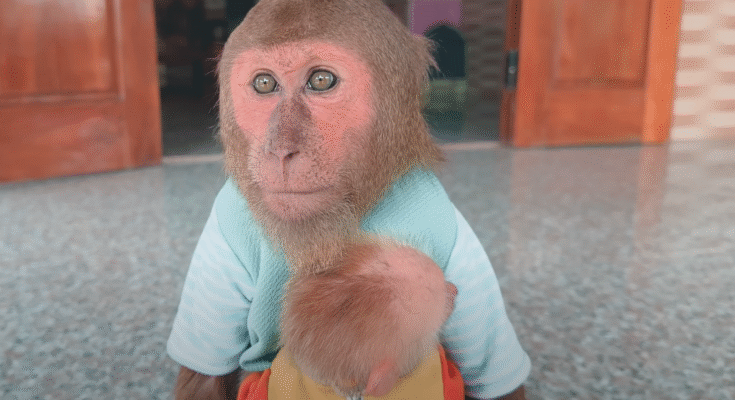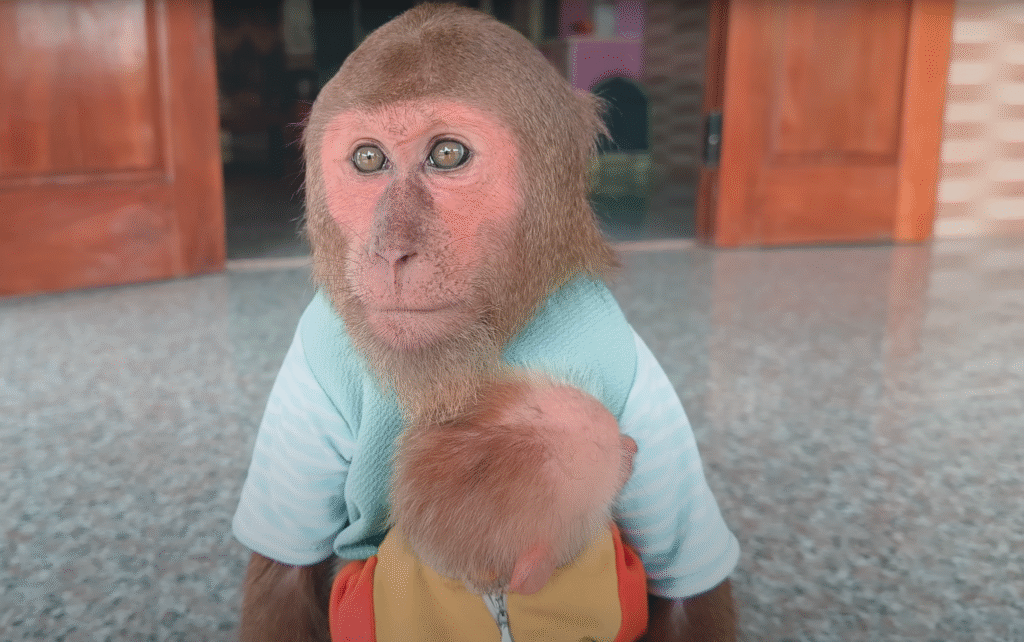
Family life, whether in human households or in the playful world of animals, is often filled with humor, love, and unexpected lessons. One such story centers around Cutis, a thoughtful and wise elder monkey, and a mischievous little baby monkey who cleverly pretends to be sick in order to stop his hardworking father from going to work. While the situation may seem lighthearted, it opens up important reflections on love, attachment, responsibility, and communication within families.
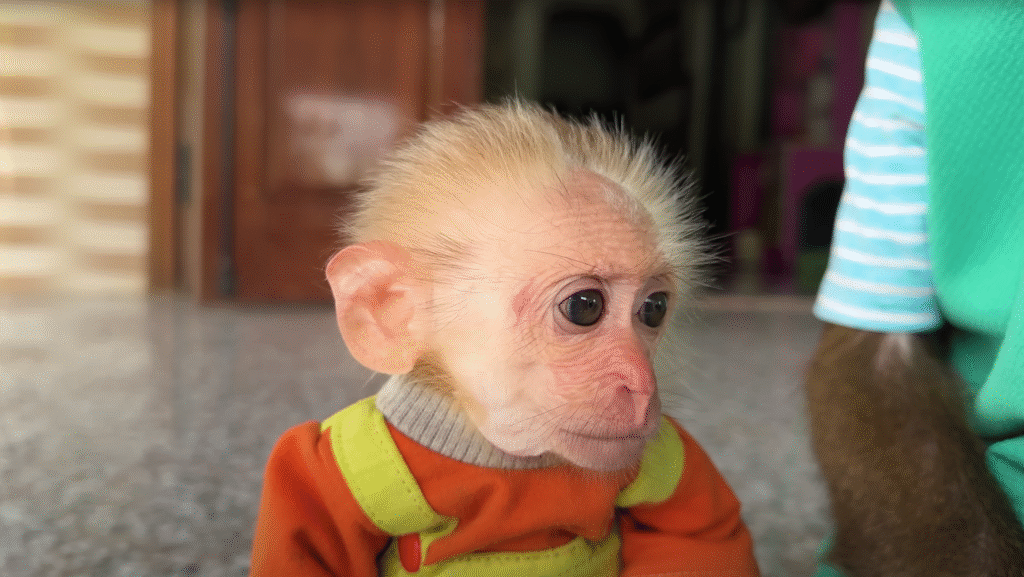
The Beginning of the Story
In a small monkey community nestled in the forest canopy, mornings are always busy. Father monkeys prepare to head out for food gathering, mothers keep a watchful eye on the little ones, and the young monkeys are often full of playful tricks.
One morning, Baby Monkey woke up unusually quiet. Instead of jumping around and chasing butterflies like he normally did, he lay curled up on a branch, groaning softly. His big brown eyes were full of mischief as he thought to himself:
“If I pretend to be sick, maybe Daddy won’t go to work today. He will stay with me, and we can play together all day.”
Baby Monkey loved his father deeply but often missed him when he was away gathering fruit or looking for food. The little one’s heart longed for more time, more stories, and more games. So, he put on his best performance—coughing, holding his tummy, and sighing dramatically.
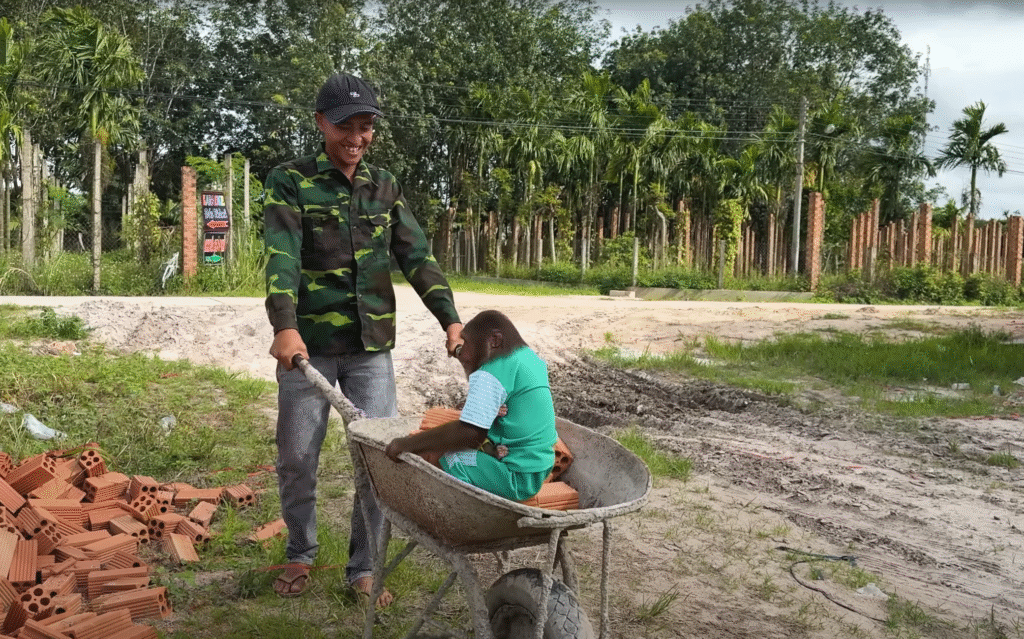
Father’s Dilemma
When Father Monkey came to check on his son, he looked worried.
“Are you feeling sick, little one?” he asked, gently stroking Baby Monkey’s head.
Baby Monkey groaned louder. “Yes, Daddy… I don’t feel well. Maybe you shouldn’t go to work today. I need you to stay with me.”
The father paused. He knew his duty was to provide food and keep the family safe, but he also felt torn when he saw his child lying helplessly. Parental love often pulls the heart in two directions—responsibility versus presence.
This is where Cutis, the wise elder monkey of the community, entered the picture.
Cutis Steps In
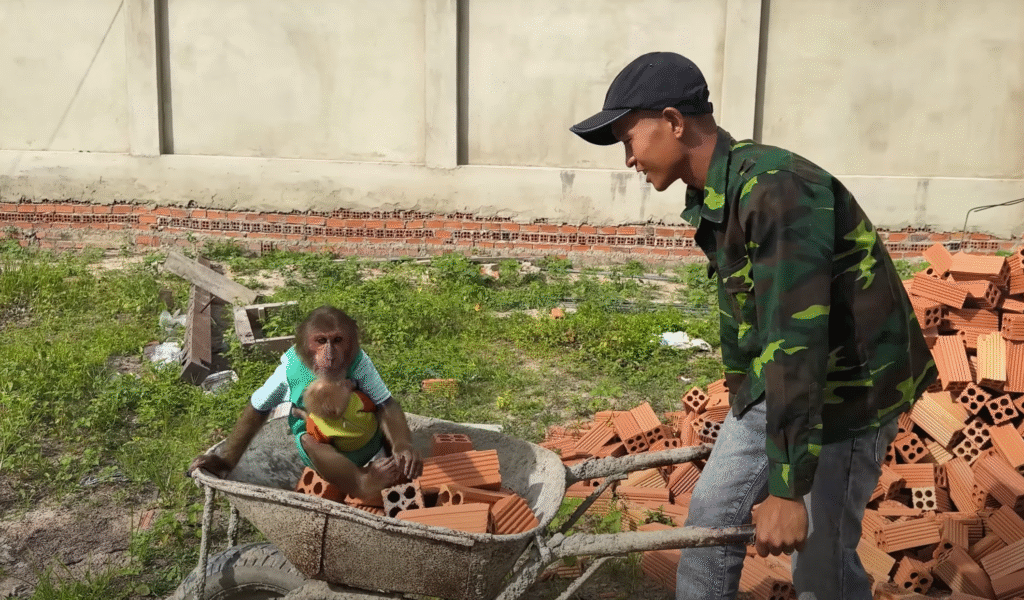
Cutis was known for his gentle voice and balanced thinking. He had seen generations of monkeys grow up, and he understood the playful tricks of youngsters. When he noticed the situation, he sat nearby and said,
“Baby Monkey, why are you groaning so loudly today? What troubles you?”
The little one looked at Cutis and whispered, “I just don’t want Daddy to leave. I miss him when he goes to work.”
Cutis nodded thoughtfully. He understood the child’s feelings but also recognized the importance of teaching him honesty and patience.
The Gentle Discussion
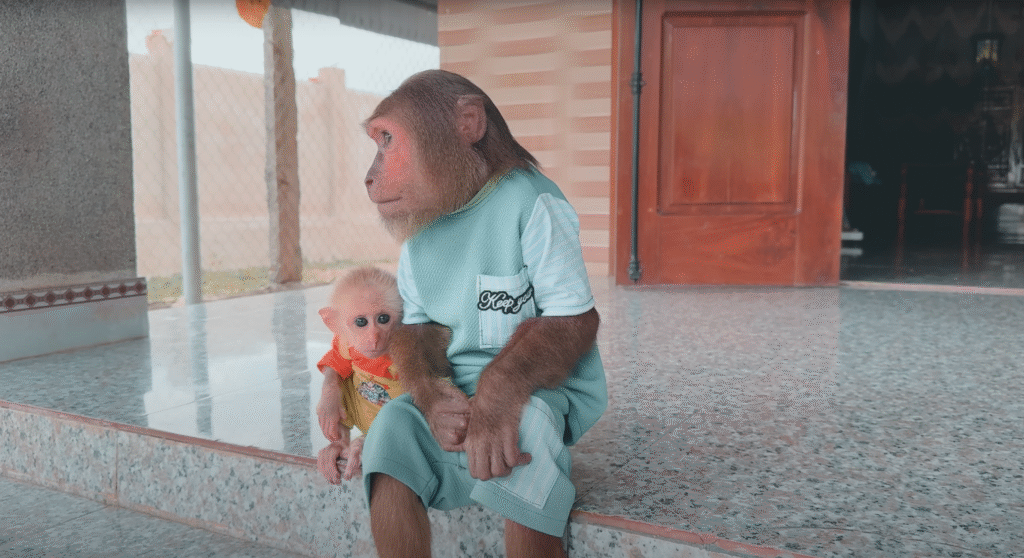
Cutis began in a warm, storytelling tone:
“Little one, love often makes us want to hold on tightly. You love your father, and that is very good. But do you know why your father goes to work?”
Baby Monkey shook his head.
“He goes because he loves you,” Cutis explained. “When he gathers fruit, finds nuts, and brings water, he is making sure you are strong, healthy, and safe. His work is not because he doesn’t want to play with you. It is because he wants you to grow.”
Baby Monkey frowned, still clinging to his plan. “But if I look sick, he will stay here with me.”
Cutis smiled kindly. “That may work once or twice, but think—what if your father stayed every day and didn’t bring food? Would your tummy be full? Would you still be able to play tomorrow?”
The child’s eyes widened. He hadn’t thought of that.
Lessons on Honesty
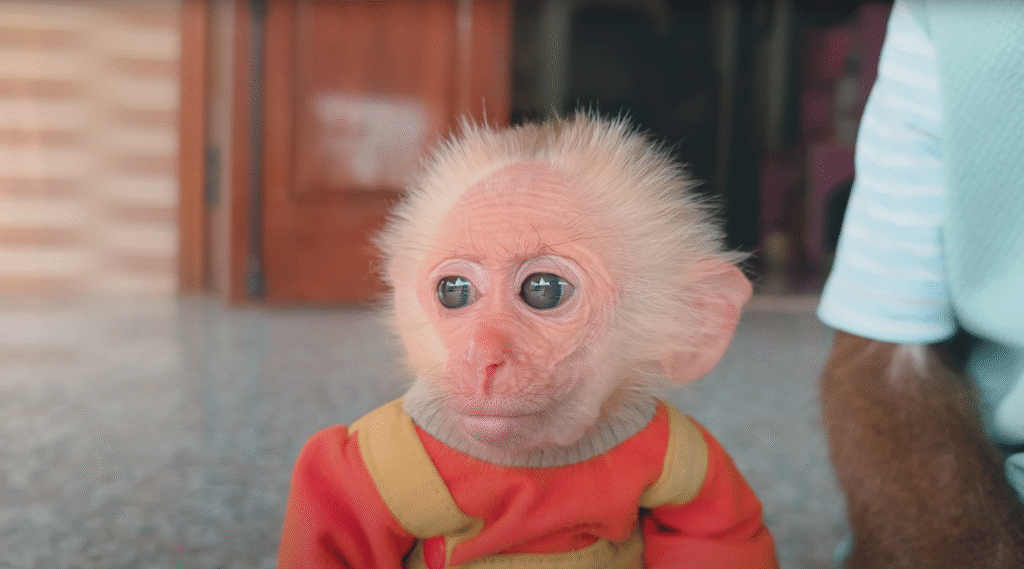
Cutis leaned closer. “Pretending to be sick may seem funny now, but dishonesty weakens trust. Your father will always care for you when you are truly ill. But if you pretend, someday he may not know when you really need help. Honesty is like the strong branch that holds you when you climb—without it, you could fall.”
Baby Monkey lowered his head. “I didn’t want to lie… I just wanted Daddy near me.”
Cutis nodded again. “Wanting love is never wrong. But expressing your feelings honestly is better. Instead of pretending to be sick, you can tell your father, ‘Daddy, I miss you. Could you play with me when you come back?’ That way, your heart speaks truthfully, and your father will understand you.”
Father’s Response
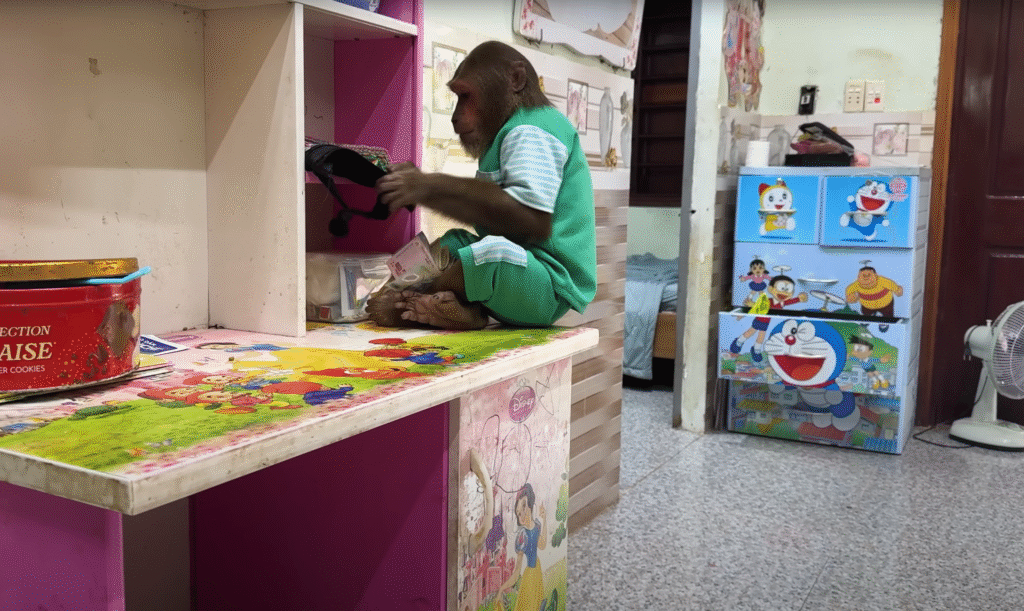
The father, who had been quietly listening, came closer. He lifted Baby Monkey into his arms and said,
“My little one, I will always love you. Even when I work, my thoughts are with you. Your laughter gives me strength. When I return, I promise to spend time playing together. But I must go now so our family can be cared for.”
Hearing this, Baby Monkey hugged his father tightly. Tears sparkled in his eyes, but they were mixed with understanding. “Okay, Daddy. I’ll be strong. But please come back soon.”
The father smiled, kissed his son’s head, and set off with lighter steps, knowing his child’s heart had grown a little wiser.
Reflections from Cutis
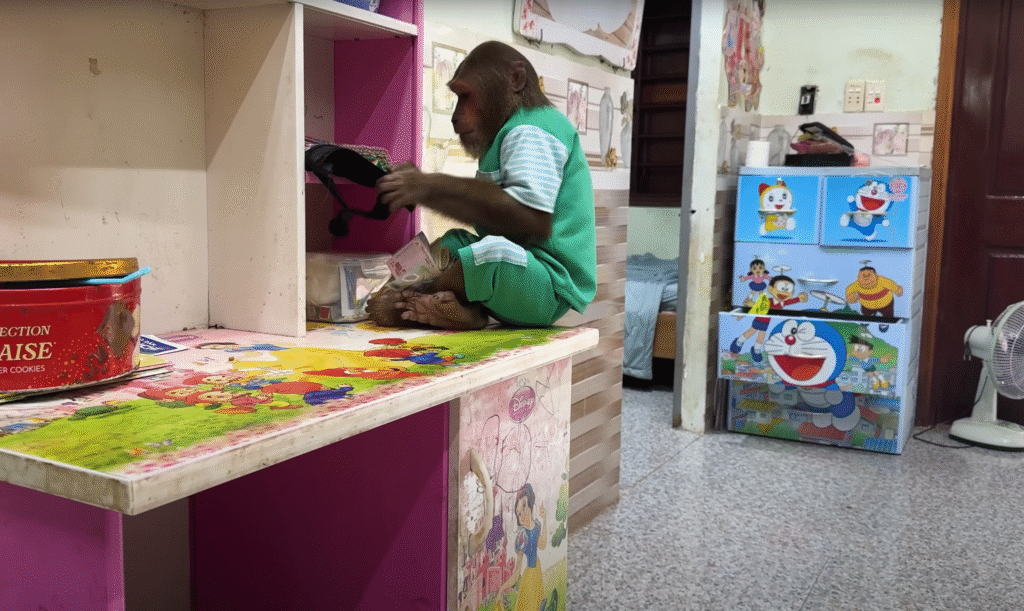
Once the father left, Cutis stayed with Baby Monkey a while longer. “You see, little one,” he said, “love is not only about keeping someone near. Sometimes love means letting them go to fulfill their responsibilities. When you wait patiently and trust their return, your bond grows even stronger.”
Baby Monkey nodded slowly. “I think I understand now. Next time I miss Daddy, I will tell him with honest words, not pretend sickness.”
The Bigger Picture
This small exchange between Cutis, Baby Monkey, and the father is more than just an amusing tale. It reflects truths that apply to all families—human or animal.
- Children’s Attachment:
Young ones naturally crave closeness. Their emotions are pure, and they may use creative ways to keep parents nearby. Understanding this attachment is key to building healthy emotional bonds. - Parental Responsibility:
Parents often balance love with duty. Providing for the family may mean absence during the day, but it is an act of deep care. Recognizing this helps children appreciate the hidden forms of love. - Value of Honesty:
Pretending, lying, or exaggerating may give temporary satisfaction but damages trust in the long run. Teaching children to express feelings openly creates stronger, more genuine relationships. - Community Wisdom:
Elders like Cutis represent the guiding voices that help bridge gaps in understanding. In real families, grandparents, teachers, or mentors often play this role.
A Lesson for All of Us
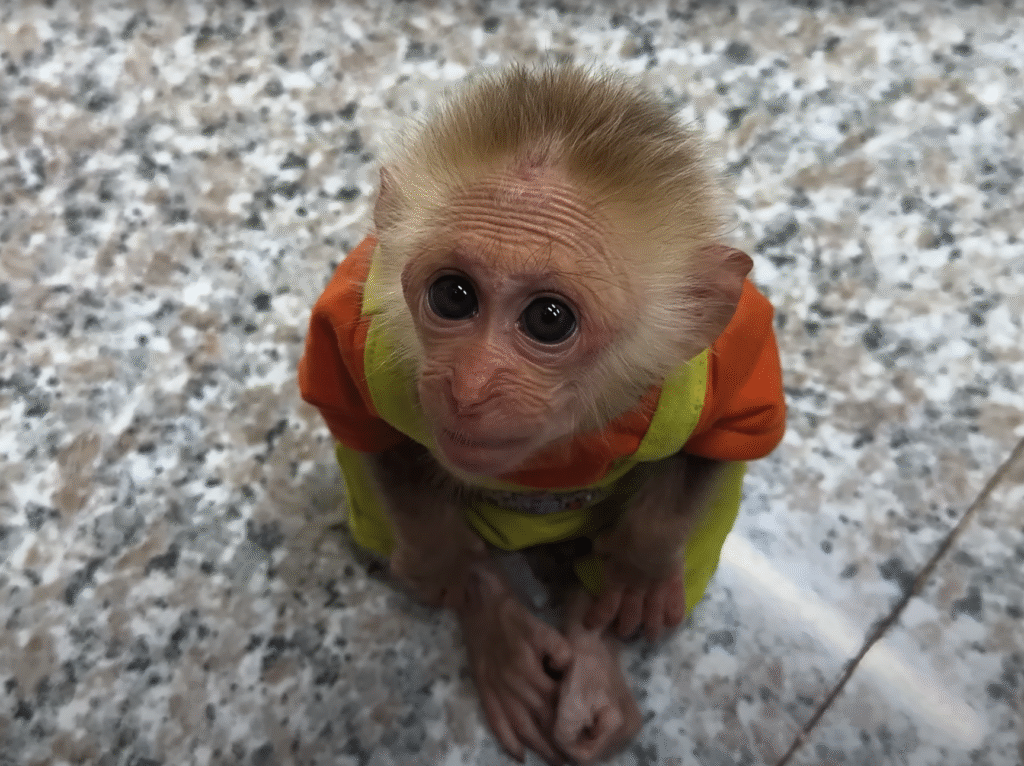
At the heart of this story is the idea that love and truth walk hand in hand. Pretending, even for affectionate reasons, can lead to confusion. Honest communication, patience, and trust are what sustain relationships.
Baby Monkey’s playful trick turned into a lesson about responsibility, honesty, and unconditional love—thanks to the gentle wisdom of Cutis.
So next time we feel like clinging tightly to someone we love, perhaps we should remember: sometimes love means letting them go for a while, trusting they will always return, and cherishing the joy of reunion.
Conclusion
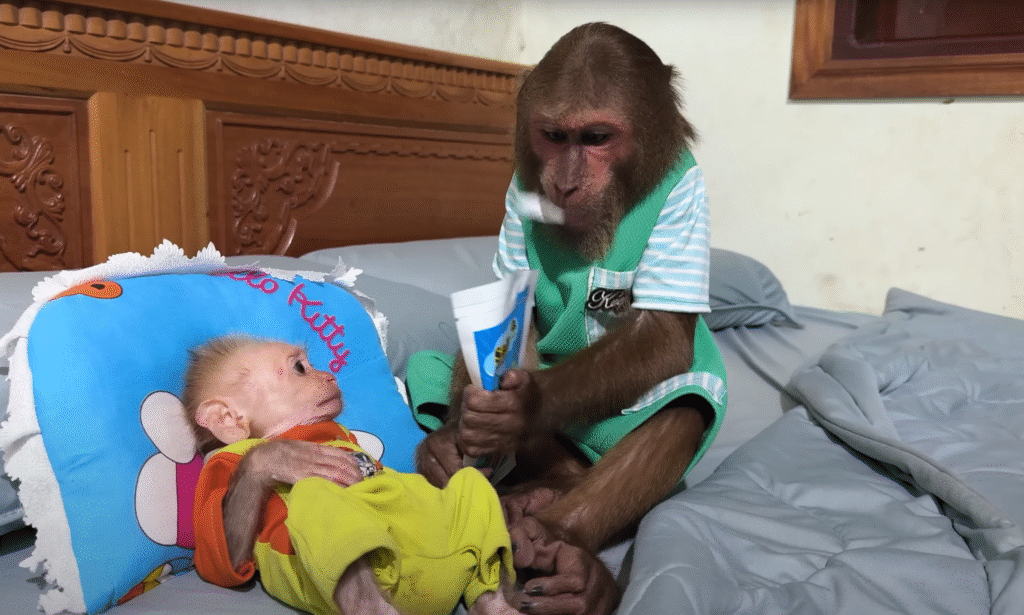
The story of Cutis discussing with Baby Monkey pretending sick to prevent Dad from going to work shows how even the smallest moments can hold deep meaning. What began as a mischievous trick became a valuable lesson in honesty, responsibility, and love.
Baby Monkey learned that truth is stronger than pretense, and that his father’s work was not absence but an expression of care. Cutis reminded him—and all of us—that open hearts and honest words are the foundation of trust in every family.
In the end, the laughter, the hugs, and the lessons create a bond that no distance, no duty, and no trick can ever weaken.
